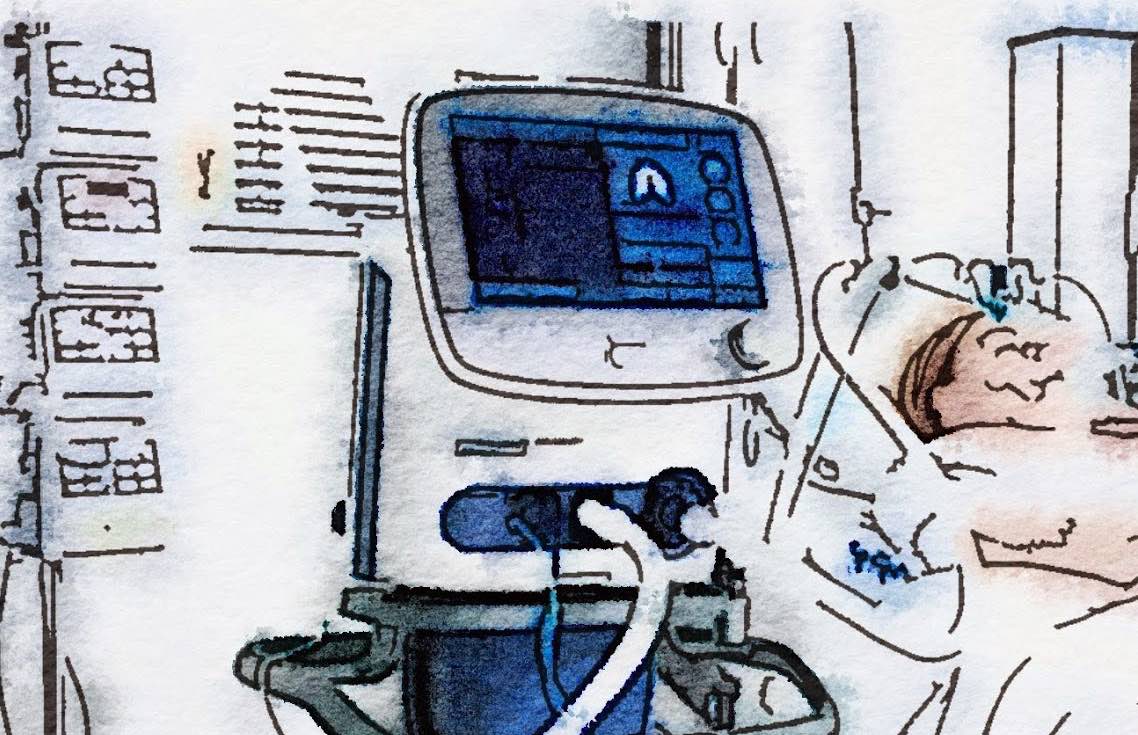
by: Helen Kao
My sister, who is immune-compromised
from breast cancer treatment, confided to me a few weeks ago, “I’m afraid if I
get Covid, I’m going to die alone, in a cold hospital bed, suffocating on my
own sputum.” As a palliative care specialist, the first thought in my mind was
“How in this country would we allow someone to die alone, suffocating?”
Our country has focused considerable
attention on the valid question of whether we have enough ventilators. But as a
palliative care physician, the additional questions I ask are: Does every critical
Covid patient want a ventilator? For
whom does a ventilator provide no benefit? Or cause harm? And how will we care
for an upsurge of dying patients in this country?
For decades, palliative care
specialists have been asking questions like these by supporting patient-driven
care. The foundation of such care is honest discussion when certain medical
interventions will not be helpful based on someone’s baseline health condition.
Ventilators can be a critical bridge to support someone through Covid. But when
a person is frail—with multiple health problems, diminished organ function,
decreased functional status—the aftermath of resuscitation and prolonged life
support with a ventilator is bleak. Most often, these individuals die in the intensive
care unit (ICU). Should they survive, many are severely and permanently
impaired, both cognitively and physically.
The rightful concern about
ICU resources has led many to measure adequate care by how many ventilators we
have. This focus comes at the expense of addressing how we will support those
who will die despite a ventilator. For those who are already frail, a
ventilator provides false hope for recovery, while diverting attention from palliative
care which can relieve suffering. Equally tragic, given hospital visitation
restrictions, many ventilated Covid patients will die with tubes and lines
inserted into their bodies, but without family to hold their hand.
Palliative care can attend to
those who decide that ICU hospitalization and undergoing invasive procedures
(such as ventilation) are not the manner in which they wish to spend the final
phase of life. For many people who are closer to their last years of life than
the first, choosing comfort rather than intensive hospital care helps relieve
anxiety and fear, and can improve the quality of their final days.
The specter of dying alone
conjures nightmares of suffering–whether it be enduring pain or struggling for
air. While these fears are magnified by the pandemic, they are not new. These
are the same concerns human beings have long had about how we live and die. Covid
has added a new unknown to contend with. But Covid is no different from
pneumonia or sepsis for many vulnerable people already weakened by advanced
illness or frailty. Palliative care relieves suffering in multiple ways: using
medications to reduce pain and shortness of breath, counseling patients and
families on what to anticipate at the end of life, helping patients complete
life tasks before death (recording a memoir, saying good-bye, or holding onto
dignity in the face of debilitating disease), and supporting bereavement for survivors
in the aftermath of death.
This pandemic is calling upon
the full force of this country’s palliative and hospice providers. We meet
patients wherever they need care (in the hospital, a facility, or at home),
even when visitors are otherwise restricted. We can teach our healthcare
colleagues how to elicit patients’ goals, convey realistic options, relieve
suffering, and support families through the fear, stigma, and isolation brought
on by Covid. With rapidly rising numbers of Covid patients, we must adapt to meet the end of life care needs for the thousands of
patients who are dying.
Ventilators are essential in
the response to Covid. But the measure of our national character should include
how we relieve suffering and provide compassion at the end of life.



